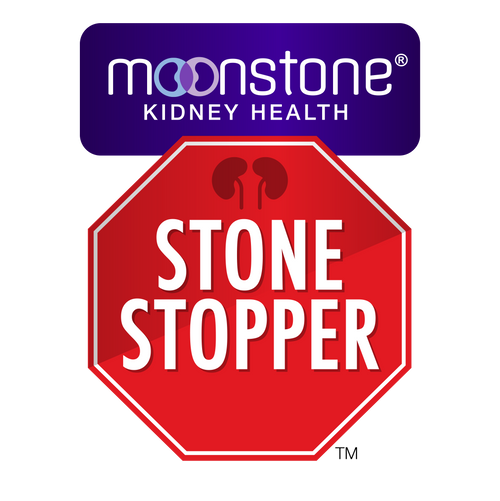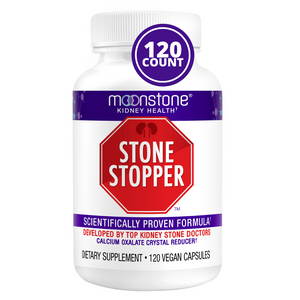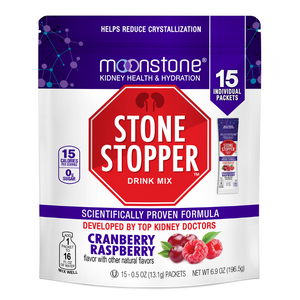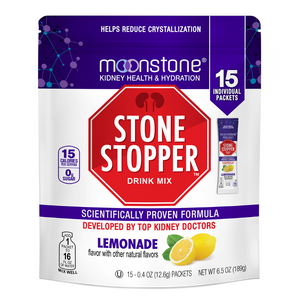You can't have a conversation about
kidney stones without also mentioning high oxalate foods, especially if you've got calcium oxalate kidney stones.
High oxalate foods contribute significantly to the formation of kidney stones by increasing the oxalate concentration in urine, which can bind with calcium and form stones. In fact, there are certain high oxalate foods to avoid that cause kidney stones.
Your doctor is the first line of defense when it comes to choosing your diet and understanding your unique situation, but there are some foods you can decrease or avoid if struggling with stones. It's essential to be aware of these foods and make informed dietary choices to manage and prevent kidney stones effectively.
Natural sources of citrate, such as fruits and non-oxalate rich vegetables, can contribute to healthy kidney function, but achieving therapeutic levels of citrate through diet alone requires consuming large amounts. Alkali citrate supplementation is a more efficient way to increase urinary citrate and pH, which helps prevent kidney stone formation. Supplements like Moonstone’s Stone Stopper are designed to deliver effective amounts of alkali citrate, optimizing kidney health more effectively than relying solely on dietary sources.
For more details, you can visit the Moonstone Nutrition FAQ page.
What is oxalate?
Oxalate is a compound that is naturally present in all kinds of foods, including fruits and vegetables, nuts and seeds, grains, legumes, and even chocolate and tea.
A common myth is that cutting out oxalate-rich foods in your diet will reduce the of calcium oxalate kidney stones, but given how prevalent oxalate is in our food, "cutting it out" is almost impossible. (Also, probably not the best nutritional advice.)
Most kidney stones are formed when oxalate binds to calcium in urine produced by the kidneys. So, it's important to eat and drink calcium and oxalate-rich foods together during a meal. This way oxalate and calcium are more likely to bind to one another in the stomach andintestines, so the oxalate doesn't get into the blood, and then into the urine, before the kidneys begin , decreasing the chance that kidney stones will form.
Which foods should you reduce?
Here are a few high oxalate foods to avoid that cause kidney stones:
Spinach
Spinach is by far the highest food source of oxalate. A 1/2 cup of cooked spinach packs 755 milligrams of oxalate, and 1 cup of raw spinach has 656 milligrams.
Limiting your spinach doesn't mean crossing off leafy greens though. Try low-oxalate options like romaine, bok choy, and arugula instead. You can also sauteing Additionally, when preparing spinach, incorporating a source of calcium such as a dairy-based dressing or cheese can further mitigate the impact of oxalates.
Rhubarb
Rhubarb, with yummy tart flavor, is known for being an addition to a variety of stellar baked dessert recipes. Sadly though it's near the top of the list of foods high in oxalates. Half a cup of rhubarb has 541 milligrams of oxalates.
Instead of rhubarb, try switching to strawberries! Strawberries are low in oxalates with only 2 milligrams per 1-cup serving. Other low-oxalate fruits to consider are blueberries and bananas, which can be great alternatives in your diet.
Buckwheat
Buckwheat, or more specifically buckwheat groats, are often looked at as a "good" carb option. They are gluten-free and can be cooked to eat like rice or added to soups and salads. While often touted as a food that lowers blood sugar and cholesterol, for stone sufferers, buckwheat is one "superfood" to stay clear of.
A 1-cup serving of cooked buckwheat groats provides 133 milligrams of oxalates. White rice, another gluten-free grain, contains only 4 milligrams of oxalates in 1 cooked cup and may be a better carb option to try. Looking for another suitable grain? Include quinoa and barley into your meals, as these help with offering lower oxalate levels and can diversify your meals.
Almonds
Nuts, seeds, and nut butters can be a nutritious addition to your diet. However, if you're looking to limit oxalate, or are at-risk for calcium oxalate kidney stones, limiting your intake is a must!
Almonds specifically are very high in oxalate. A 1-ounce serving (about 22 almonds) packs 122 milligrams of oxalates.
For your heart-healthy unsaturated fats, try switching to pistachios, which have 14 milligrams of oxalates per a 1-ounce serving (about 48 pistachios). Another alternative is sunflower seeds, which also offer beneficial fats with lower oxalate content.
Baked Potato
Yes, potatoes are high in carbs but they are also rich in fiber, vitamin C, and potassium. Often a staple of the western diet, potatoes can be found in many common comfort foods and recipes.
However, a medium baked potato with skin contains 97 milligrams of oxalates. When trying to limit oxalates, explore carb alternatives like sweet potatoes. One cup of cooked sweet potatoes contains 28 milligrams of oxalates, which is about one-third less than a baked potato.
Going Beyond Oxalate
People suffering from chronic kidney stones should absolutely look to mindfully decrease their oxalate intake. However, diet changes alone won't be enough to stop kidney stones from causing you pain.
For alkalinization, alkali citrate is far superior to baking soda (sodium bicarbonate), particularly for kidney health. Baking soda is high in sodium, which may elevate blood pressure. Sodium intake also increases calcium excretion, which is why kidney stone doctors advise lower sodium intake.
A 2023 study done by Dr. David Goldfarb at NYU Langone showed that Stone Stopper's low sodium products did not cause an increase in calcium excretion. Stone Stopper’s alkali citrate products are delicious, have very little sodium, and are more reliable for kidney stone prevention.
Incorporating lifestyle changes, such as staying well-hydrated, is crucial for kidney stone prevention, as increased water intake dilutes urine and reduces oxalate concentration. Regular exercise and a balanced diet rich in fruits and vegetables (low in oxalates) also play a significant role in prevention. For alkalization, alkali citrate is superior to sodium bicarbonate, particularly for kidney health. Unlike sodium bicarbonate and sodium carbonate, which may elevate blood pressure due to increased sodium intake, Moonstone’s alkali citrate products offer a safer and more reliable option without these risks, effectively supporting kidney health.
A simpler solution could be to add
Moonstone Stone Stopper™ for its stone stopping dosage of alkali citrate. Available in capsules and powder beverages in a variety of delicious flavors, adding Moonstone's
30mEq dose of alkali citrate (from citrate salts) to your daily routine can help to prevent further stones from forming.
#TryMoonstone









2 comments
? Level of oxalate in beets?
Potassium citrate binds to calcium in the urine to make it soluble so you prevent calcium oxalate stone formation.
Does this product actually work I have a severe kidney stone issue that I’ve been trying to remove